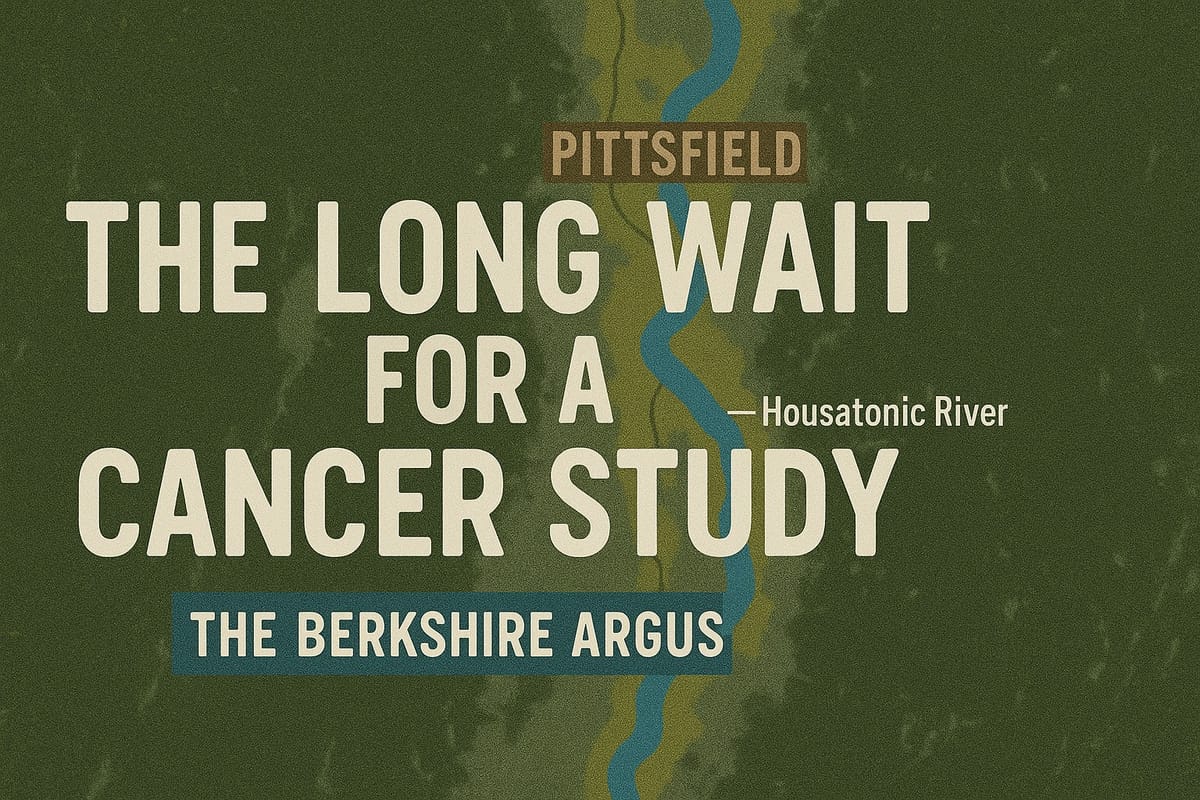Hi everyone,
In early February, as part of months of reporting that culminated in The Uncertainty Machine—one of the most in-depth stories published since The Argus launched in 2023—I filed a public-records request with the Massachusetts Department of Public Health for documents related to its long-delayed study of PCBs and cancer in Pittsfield and the Housatonic River region.
In mid-March, D.P.H. sent me 485 pages of responsive material: confidential memos, e-mail traffic, scientific summaries, and other information related to the study-in-progress and the agency's interactions with Pittsfield officials.
The documents informed my extensive reporting on the study’s lengthy timeline and missed deadlines, which I also detailed in an eight-minute Argus video documentary.
Shortly after the story and video were published, the Town of Lee submitted its own public-records request to D.P.H., seeking additional information about the still-unreleased study.
It was a timely request: the town’s PCB Advisory Committee—which includes Lee’s three Select Board members and a group of concerned residents who advise on the unfolding General Electric/Housatonic “Rest of River” remediation plan and a proposed PCB landfill in Lee—had just begun to consider whether to pursue its own epidemiological investigation. It would be a substantial, long-term, and expensive undertaking, and one that remains in the early discussion stage. (The Argus reported on the advisory committee as part of a story last November.)
But D.P.H. said it had nothing to share with the town.
In a response letter shared with The Argus by Lee’s town administrator, Chris Brittain, the agency made two claims: first, that the agency, including its Bureau of Climate and Environmental Health, had no responsive documents. “After a comprehensive search,” the agency wrote, “DPH/BECH [sic] has not identified any records in its custody and control which are responsive to your request.” And second, that it was “prohibited” from disclosing any records related to its “ongoing work” on the cancer study, citing a public-records exemption for “policies under development.”
But those claims are problematic—not least because D.P.H. had already provided The Argus with hundreds of pages of relevant material. And if, as the agency claimed, there were no responsive records, there would have been no need to cite an exemption for withholding them. Further, when citing an exemption, the law requires that the agency provide basic information about the withheld documents such as title, author, and date—something D.P.H. did not do.
To be fair, Brittain’s request wasn’t exactly airtight. His request for a copy of the report—or any drafts—may not have been written broadly enough to cover all relevant documents, especially given the agency’s resistance to sharing information about why its “screening-level review” of regional cancer data has dragged on for more than four years.
At the same time, in my experience, the “policies under development” exemption has been routinely misused and misapplied by Massachusetts state agencies to avoid disclosure—a pattern I’ve seen more frequently since Governor Maura Healey took office in January 2023. Other journalists have told me they’ve noticed it, too.
Indeed, one internal memo the agency initially withheld from The Argus using that exemption was a set of talking points its employees would use during a public meeting held last October in Lee. When I argued that talking points for use in public could not be withheld under a policies-under-development exemption, it soon forwarded the document.
When I contacted D.P.H. in late July, a spokesperson offered no further explanation for why the Town of Lee was denied documents previously provided to The Argus, and offered no additional comment on the latest delay—saying only that the written report was still “undergoing review.”
The agency told Brittain the study would be released this summer. But it gave no timeline in its recent response to me, saying only, “D.P.H. will release the report when [the] review has been completed.” (Previously, the agency told me at various points that it would be released last fall, last winter, and this spring.)
Even if, as The Uncertainty Machine made clear, it is unlikely to draw a clear link between PCBs and cancer in Pittsfield and along the Housatonic River, residents still want the completed study—both for the data and for some sign the state takes their concerns seriously.
Instead, prolonged delays and near-silence have only deepened public distrust in state health officials that—as residents, local officials, activists, and former General Electric workers told me this year—has long been in short supply.
More to come,
Bill








